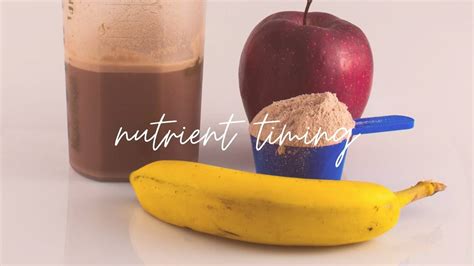What macronutrient timing strategy fuels sustained energy and muscle recovery for men?

For men dedicated to maintaining peak physical performance, building muscle, and ensuring rapid recovery, the ‘what’ of nutrition is only half the battle. The ‘when’ – macronutrient timing – plays an equally critical role. Strategically consuming carbohydrates, proteins, and fats around training sessions and throughout the day can significantly impact energy levels, muscle protein synthesis, and overall athletic longevity.
Understanding Macronutrients and Their Roles
Before diving into timing, it’s essential to briefly recap the core functions of each macronutrient:
- Carbohydrates: The body’s primary source of energy, especially during high-intensity exercise. Stored as glycogen in muscles and the liver.
- Proteins: Essential for muscle repair, growth, and overall tissue maintenance. Composed of amino acids, the building blocks of muscle.
- Fats: Provide a concentrated source of energy, support hormone production, and aid in the absorption of fat-soluble vitamins.
The synergy of these three, consumed at the right times, is the foundation of an effective timing strategy.

Pre-Workout Fuel: Preparing for Performance
What you eat before training sets the stage for your workout’s intensity and duration. The goal is to provide readily available energy and protect muscle tissue.
- Carbohydrates: Consume complex carbohydrates (e.g., oats, whole-grain bread, sweet potatoes) 2-3 hours before a workout to ensure a steady release of glucose into the bloodstream. For closer proximity to training (30-60 minutes), opt for simpler carbs like fruit or a small rice cake for quick energy.
- Protein: A moderate amount of lean protein (e.g., chicken breast, Greek yogurt, protein shake) 1-3 hours prior helps reduce muscle breakdown during exercise and initiates recovery early.
- Fats: Keep fat intake low pre-workout, as fats slow down digestion and can lead to discomfort during exercise.
Intra-Workout: Sustaining Effort
For most men, especially those engaging in workouts under an hour, intra-workout nutrition isn’t strictly necessary if pre-workout fueling was adequate. However, for prolonged sessions (90+ minutes) or extremely high-intensity training, supplementing during exercise can be beneficial.
- Carbohydrates: A simple carbohydrate drink (e.g., diluted fruit juice, sports drink) can provide a quick energy boost, preventing fatigue and maintaining performance.
- Protein/BCAAs: Some athletes find branched-chain amino acids (BCAAs) or a small amount of hydrolyzed protein beneficial to further prevent muscle breakdown, though evidence for this is more mixed than for carbs.
Post-Workout: The Anabolic Window
This is arguably the most critical timing window for muscle recovery and growth. Immediately after exercise, your muscles are primed to absorb nutrients for repair and glycogen replenishment.
- Carbohydrates: Rapidly absorbed carbohydrates (e.g., white rice, fruit, dextrose) are crucial to replenish muscle glycogen stores, which are depleted during exercise. Aim for a higher carb intake here.
- Protein: A high-quality protein source (e.g., whey protein, lean meat, eggs) is essential to kickstart muscle protein synthesis and repair damaged muscle fibers. A common recommendation is 20-40 grams of protein within 30-60 minutes post-workout.
- Fats: Similar to pre-workout, keep fat intake moderate to low immediately post-workout to avoid slowing down the digestion and absorption of carbs and protein.

Beyond the Workout: Daily and Evening Nutrition
While peri-workout nutrition is vital, consistent nutrient intake throughout the day is equally important for sustained energy and long-term recovery.
- Balanced Meals: Ensure each major meal (breakfast, lunch, dinner) contains a balanced mix of complex carbohydrates, lean protein, and healthy fats. This supports satiety, stable blood sugar, and continuous nutrient supply.
- Protein Spacing: Distribute protein intake evenly across meals (e.g., 25-40g per meal) rather than consuming a large amount in one sitting. This optimizes muscle protein synthesis throughout the day.
- Evening Protein: A slow-digesting protein (like casein protein or cottage cheese) before bed can provide a sustained release of amino acids overnight, supporting muscle repair while you sleep.

Putting It All Together: A Holistic Strategy
The ideal macronutrient timing strategy isn’t a rigid formula but a flexible framework. It requires understanding your body’s unique needs, training intensity, and daily schedule. Focus on:
- Consistency: Regular, well-timed meals are more effective than sporadic perfect meals.
- Individualization: Experiment with timing and amounts to see what works best for your energy levels and recovery.
- Quality over Quantity: Prioritize whole, unprocessed foods over highly refined options.
- Hydration: Don’t forget water; it’s crucial for all metabolic processes and nutrient transport.

Conclusion
Mastering macronutrient timing can be a game-changer for men aiming to optimize their physical potential. By strategically fueling your body before, during, and after workouts, and maintaining consistent, balanced nutrition throughout the day, you can unlock sustained energy, accelerate muscle recovery, and achieve your fitness goals more effectively. Listen to your body, track your progress, and adjust your strategy as needed to find your perfect rhythm.








